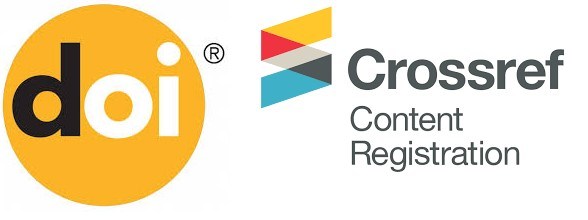El desarrollo de la didáctica de las matemáticas, una mirada internacional
DOI:
https://doi.org/10.46219/rechiem.v12i3.38Palabras clave:
Didáctica de las matemáticas; Educación Matemática; desarrollo internacional de la investigación didáctica.Resumen
Este artículo trata del desarrollo internacional de la investigación didáctica en matemáticas. Después de recordar la relación especial que existe entre las matemáticas y su enseñanza, evoca en primer lugar la emergencia de la didáctica de las matemáticas como un campo de investigación específico, en un contexto marcado por la reforma de las matemáticas modernas y la influencia de la epistemología piagetiana. A continuación, se examina la evolución de este campo de investigación, centrándose en algunas tendencias globales que trascienden su diversidad inherente, antes de abordar más específicamente la cuestión de las relaciones entre centros y periferias, y destacar la lenta pero real evolución hacia una didáctica de las matemáticas más auténticamente internacional.
Descargas
Citas
Adler, J. (Coord.) (2008). Mirror images of an emerging field: Researching mathematics teacher education. En E. Emborg, y M. Niss (Eds.), Proceedings of the 10th International Congress of Mathematics Education (pp. 123-139). Copenhaguen: Roskilde University.
Akizuki, Y. (1960). Proposal to ICMI. L’Enseignement Mathématique, t. V, fasc.4, 288-289.
Arzarello, F. (2008). Mathematical landscapes and their inhabitants: Perceptions, languages, theories. En E. Emborg, y M. Niss (Eds.), Proceedings of the 10th International Congress of Mathematics Education (pp. 158-181). Copenhaguen: Roskilde University.
Artigue, M. (2002). Learning mathematics in a CAS environment: the genesis of a reflection about instrumentation and the dialectics between technical and conceptual work. International Journal of Computers for Mathematics Learning, 7, 245-274.
Artigue, M. (2011). Tecnología y enseñanza de las matemáticas: desarrollo y aportaciones de la aproximación instrumental. Cuadernos de Investigación en Educación Matemática, 8, 13-33.
Artigue, M. (2018). Les recherches sur l’enseignement et l’apprentissage des mathématiques à l’étranger. En J.-L. Dorier, G. Gueudet, M.-L. Peltier, A. Robert, y E. Roditi (Eds.), Enseigner les mathématiques. Didactique et enjeux d’apprentissage (pp. 408-420). Paris: Editions Belin.
Artigue, M., y Blomhøj, M. (2013). Conceptualizing inquiry-based education in mathematics. ZDM – The International Journal on Mathematics Education, 45(6), 797- 810.
Artigue, M., y Mariotti, M.A. (2014). Networking theoretical frames: the ReMath enterprise. Educational Studies in Mathematics, 85(3), 329-356.
Artigue, M. et al. (2019). The French didactic tradition. En B. Werner, M. Artigue, M. A. Mariotti, R. Sträer, y M. Van den Heuvel-Panhuizen (Eds.), European Traditions in Didactics of Mathematics (pp. 11-56). New-York: Springer Open.
Artigue, M., Bosch, M., Doorman, M., Juhász, P., Kvasz, L., y Maass, K. (2020). Inquiry based mathematics education and the development of learning trajectories. Teaching Mathematics and Computer Science. 18/3, 63-89.
Ball, D. L., y Bass, H. (2000). Interweaving content and pedagogy in teaching and learning to teach: knowing and using mathematics. En J. Boaler (Ed.), Multiple perspectives on the teaching and learning of mathematics (pp. 83-104). Westport: Ablex.
Bartolini Bussi, M. G., y Mariotti, M. A. (2008). Semiotic mediation in the mathematics classroom: Artifacts and signs after a Vygotskian perspective. En L. English, M. Bartolini Bussi, G. Jones, R. Lesh, y D. Tirosh (Eds.), Handbook of international research in mathematics education (2nd edition, revised, pp. 746-805). Mahwah: Lawrence Erlbaum.
Barwell, R., Clarkson, P., Halai, A., Kazima, M., Moschkovich, J., Planas, N.,… y Ubillús, M. V. (Eds.). (2016). Mathematics Education and Language Diversity. The 21st ICMI Study. New York: Springer. https://doi.org/10.1007/978-3-319-14511-2
Belhoste, B. (1998). Pour une réévaluation du rôle de l’enseignement dans l’histoire des mathématiques. Revue d’histoire des mathématiques, 4, 289-304. Recuperado desde http://www.numdam.org/article/RHM_1998__4_2_289_0.pdf
Bikner-Ahsbahs, A., y Prediger, S. (Eds.) (2014). Networking of Theories as a Research Practice in Mathematics Education. New York: Springer. https://doi.org/10.1007/978-3-319-05389-9
Blum, W. (2015). Quality teaching of mathematical modelling: What do we know, what can we do? En S. J. Cho (Ed.), The Proceedings of the 12th International Congress on Mathematical Education (pp. 73-96). New York: Springer Open. https://doi.org/10.1007/978-3-319-12688-3
Blum, W., Galbraith, P. Henn, H.-W., y Niss, M. (2007). Modelling and Applications in Mathematics Education. The 14th ICMI Study. New York: Springer. https://doi.org/10.1007/978-0-387-29822-1
Blum, W., Artigue, M., Mariotti, M. A., Sträer, R., y Van den Heuvel-Panhuizen, M. (Eds.) (2019). European Traditions in Didactics of Mathematics. New York: Springer Open. https://doi.org/10.1007/978-3-030-05514-1
Borba, M. C., y Villarreal, M. E. (2006). Humans-with-Media and the Reorganization of Mathematical Thinking. New York: Springer. https://doi.org/10.1007/b105001
Brousseau, G. (2008). Research in mathematics education. En E. Emborg, y M. Niss (Eds.), Proceedings of the 10th International Congress of Mathematics Education (pp. 244-254). Copenhaguen: Roskilde University.
Cantoral, R. (2013). Teoría Socioepistemológica de la Matemática Educativa. México: Gedisa editorial.
Cantoral, R. (2020). Socioepistemology in mathematics education. En S. Lerman (Ed.), Encyclopedia of Mathematics Education (2nd edition, pp. 790-797). New York: Springer. https://doi.org/10.1007/978-3-030-15789-0
Chevallard, Y. (2019). Introducing the anthropological theory of the didactic: an attempt at a principled approach. Hiroshima Journal of Mathematics Education, 12, 71-114. Recuperado desde https://www.jasme.jp/hjme/download/05_Yves%20Chevallard.pdf
Clarke, D. J., Keitel, C., y Shimizu, Y. (Eds.) (2006). Mathematics classrooms in twelve countries: The insider’s perspective. Rotterdam: Sense Publishers. https://doi.org/10.1163/9789087901622
Coray, D., Furinghetti, S., Gispert, H., Hodgson, B., y Schubring, G. (Eds.) (2003). One hundred years of L’Enseignement Mathématique. Genève: L’Enseignement Mathématique. Recuperado desde https://www.mathunion.org/fileadmin/ICMI/files/Digital_Library/Other_ICMI_Conferences_Proceedings/Proc_EM_ICMI_Symp_01.pdf
D’Ambrosio, U. (2008). Etnomatemática. Eslabón entre las tradiciones y la modernidad. México: Limusa.
Dorier, J.-L. (2018). Aperçu de l’histoire de la didactique des mathématiques francophone. En J.-L. Dorier, G. Gueudet, M.-L. Peltier, A. Robert, y E. Roditi (Eds.), Enseigner les mathématiques. Didactique et enjeux d’apprentissage (pp. 74-88). Paris: Editions Belin.
Duval, R. (1995). Semiosis et pensée humaine. Berne: Peter Lang.
Even, R., y Ball, D. L. (Eds.) (2009). The Professional Education and Development of Teachers of Mathematics. The 15th ICMI Study. New York: Springer. https://doi.org/10.1007/978-0-387-09601-8
Gispert, H. (2008). Traités et manuels: influences croisées des sphères sociales, scolaires et académiques dans les sciences. En L. Viennot (Ed.), Didactique, épistémologie et histoire des sciences - Penser l’enseignement (pp. 257-279). Paris: PUF. https://doi.org/10.3917/puf.vienn.2008.01.0257
Hanna, G., y De Villiers, M. (2012). Proof and Proving in Mathematics Education. The 19th ICMI Study. New York: Springer. https://doi.org/10.1007/978-94-007-2129-6
Hodgson, B., y Niss, M. (2018). ICMI 1966-2016: A Double Insiders’ View of the Latest Half Century of the International Commission on Mathematical Instruction. En G. Kaiser (Ed.), Invited Lectures from the 13th International Congress on Mathematical Education (pp. 229-247). New York: Springer Open. https://doi.org/10.1007/978-3-319-72170-5
Huang, R., Takahashi, A., y Da Ponte, J. P. (Eds.) (2019). Theory and Practice of Lesson Study in Mathematics. An International Perspective. New York: Springer. https://doi.org/10.1007/978-3-030-04031-4
Kilpatrick, J. (1992). A history of research in mathematics education. En D. Grouws (Ed.), Handbook of research on mathematics teaching and learning (pp. 3-38). New York: Macmillan.
Kilpatrick, J. (2020). History of research in mathematics education. En S. Lerman (Ed.), Encyclopedia of Mathematics Education (2nd edition, pp. 349-354). New York: Springer. https://doi.org/10.1007/978-3-030-15789-0
Kynigos, C., y Lagrange, J. B. (Eds.) (2014). Special issue: Representing mathematics with digital media: Working across theoretical and contextual boundaries. Educational Studies in Mathematics, 85(3). https://doi.org/10.1007/s10649-013-9521-3
Lerman, S. (2000). The social turn in mathematics education research. En J. Boaler (Ed.), Multiple perspectives on mathematics teaching and learning. Westport: Ablex. https://doi.org/10.2307/749752
Leung, F. K. S., Graf, K.-D., y Lopez-Real, F. J. (Eds.) (2006). Mathematics education in different cultural traditions: A comparative study of East Asia and the West. The 13th ICMI Study. New York: Springer. https://doi.org/10.1007/0-387-29723-5
Menghini, M., Furinghetti, F., Giacardi, L., y Arzarello, F. (Eds.) (2008). The first century of the International Commission on Mathematical Instruction (1908-2008). Reflecting and shaping the world of mathematics education. Roma: Istituto della Enciclopedia Italiana.
Mesiti, C., Artigue, M., Hollingsworth, H., Cao, Y., y Clarke, D. J. (Eds.). (en prensa). Teachers talking about their classrooms: Learning from the professional lexicons of mathematics teachers around the world. Routledge.
Morgan, C. (2006). What does social semiotics have to offer to mathematics education research? Educational Studies in Mathematics, 61(1-2), 219-245. https://doi.org/10.1007/s10649-006-5477-x
Niss, M., y Blum, W. (2020). The Learning and Teaching of Mathematical Modelling. New York: Routledge. https://doi.org/10.4324/9781315189314
Pegg, J. (2020). The van Hiele theory. En S. Lermann (Ed.), Encyclopedia of Mathematics Education (2nd edition, pp. 896-899). New York: Springer. https://doi.org/10.1007/978-3-030-15789-0
Radford, L. (2019). On the epistemology of the Theory of Objectification. Proceedings of the Eleventh Congress of the European Society for Research in Mathematics Education. Utrecht University. Recuperado desde https://hal.archives-ouvertes.fr/hal-02417416/document
Radford, L., Schubring, G., y Seeger, F. (Eds.) (2011). Signifying and meaning-making in mathematical thinking, teaching and learning: Semiotic perspectives. Special issue. Educational Studies in Mathematics, 77(2-3). https://doi.org/10.1007/s10649-011-9322-5
Robert, A., y Rogalski, J. (2002). Le système complexe et cohérent des pratiques des enseignants de mathématiques: une double approche. Canadian Journal of Science, Mathematics and Technology Education 2(4), 505-528. https://doi.org/10.1080/14926150209556538
Rocard, M., Csermely, P., Jorde, D., Lenzen, D., Walberg-Henriksson, H., y Hemmo, V. (2007). L’enseignement scientifique aujourd’hui: une pédagogie renouvelée pour l’avenir de l’Europe. Bruxelles: Commission Européenne, Direction générale de la recherche, science, économie et société.
Roth, W. -M., & Lee, Y. -J. (2007). “Vygotsky’s neglected legacy”: Cultural-historical activity theory. Review of Educational Research, 77(2), 186-232.
Sáenz-Ludlow, A., y Presmeg, N. (Eds.) (2006). Semiotic perspectives in mathematics education. Special issue. Educational Studies in Mathematics, 61(1-2). https://doi.org/10.1007/s10649-005-9001-5
Schubring, G. (2008). The origins and early incarnations of ICMI. In M. Menghini, F. Furinghetti, L. Giacardi, y F. Arzarello (Eds.) (2008). The first century of the International Commission on Mathematical Instruction (1908-2008). Reflecting and shaping the world of mathematics education (pp. 113-130). Roma: Istituto della Enciclopedia Italiana.
Sfard, A. (2008). Thinking as Communicating. Cambridge: Cambridge University Press. https://doi.org/10.1017/CBO9780511499944
Sfard, A. (2020). Commognition. En S. Lerman (Ed.), Encyclopedia of Mathematics Education (2nd edition, pp. 95-101). New York: Springer. https://doi.org/10.1007/978-3-030-15789-0
Shimizu, Y., y Vithal, R. (Eds.) (2018). School Mathematics Curriculum Reforms: Challenges, Changes and Opportunities. Proceedings of the ICMI-24 Study Conference. University of Tsukuba & ICMI, Tsukuba, Japan. Recuperado desde
Skemp, R. (1976). Relational Understanding and Instrumental Understanding. Mathematics Teaching, 77, 20-26 Recuperado desde .http://www.davidtall.com/skemp/pdfs/instrumental-relational.pdf
Skovsmose, O. (1994). Towards a Philosophy of Critical Mathematics Education. Dordrecht: Kluwer Academic Publishers. https://doi.org/10.1007/978-94-017-3556-8
Trouche, L, y Drijvers, P. (2010). Handled technology: Flashback into the future. ZDM. The International Journal on Mathematics Education, 42(7), 667-681. https://doi.org/10.1007/s11858-010-0269-2
Vandebrouck, F. (2013). Mathematics Classrooms: Students' Activities and Teachers' Practices. Rotterdam: Sense Publishers. https://doi.org/10.1007/978-94-6209-281-5
Vérillon, P., y Rabardel, P. (1995). Cognition and Artifacts: A Contribution to the Study of Though in Relation to Instrumented Activity. European Journal of Psychology of Education, 10(1), 77-101. https://doi.org/10.1007/BF03172796
Weigand, H.-G., McCallum, W., Menghini, M., Neubrand, M., y Schubring, G. (Eds.) (2019). The legacy of Felix Klein. New York: Springer. https://doi.org/10.1007/978-3-319-99386-7











